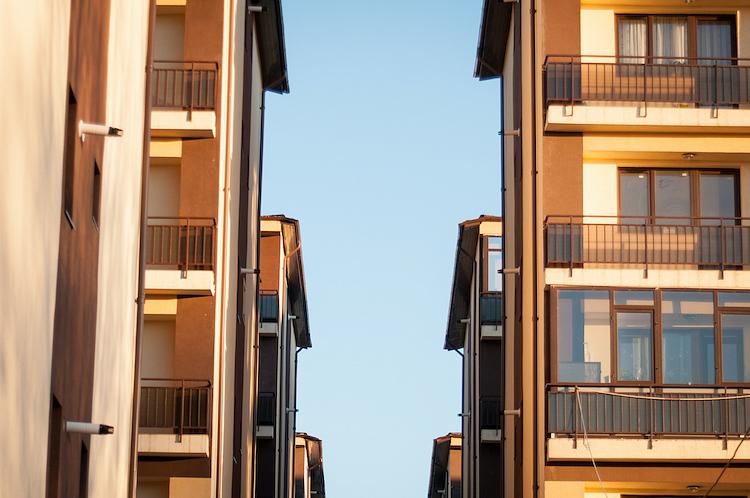Deloitte Property Index: Romanians need six annual salaries to buy a standard dwelling



Romania ranks second in the top of the European countries with the cheapest housing, after Bosnia and Herzegovina, according to the Deloitte Property Index 2022, conducted in 23 countries and 68 cities.
The average price per sqm in the country is EUR 1,266, calculated based on data from the main cities and towns in the country. Compared to the previous year, the average price is 7.3% higher.
In the ranking of cities, the most expensive in Romania is Cluj-Napoca, with an average of EUR 1,940/sqm, followed by Bucharest (EUR 1,573 /sqm) and Brasov (EUR 1,348/sqm).
The list of countries with the lowest average prices also includes Serbia (EUR 1,520 EUR/sqm) and Portugal (EUR 1,537 EUR/sqm). The report does not include the indicator national average price per sqm for Bulgaria and Norway.
When it comes to housing affordability in each country, calculated as the number of average gross annual salaries required to buy a standard dwelling (70 sqm), Romania ranks seventh out of the 19 countries for which this indicator was calculated. A Romanian needs 6.3 annual salaries for such a purchase.
The hardest-to-reach housing is in the Czech Republic, where 13.3 average annual gross wages are needed for a dwelling, and the most affordable is in Ireland (3.1 average annual salaries), Norway (4.4) and Belgium (4.5), the survey showed.
The ranking of the European cities with the most expensive dwellings is led by Paris, with an average price of EUR 13,462/sqm for an apartment, followed by Munich (EUR 10,500/sqm) and London (EUR 8,426/sqm).
Among the cities where houses are more expensive than those in the country's capital are Barcelona in Spain (EUR 6,251/sqm), Antwerp in Belgium (EUR 4,050/sqm), Milan in Italy (EUR 3,844/sqm), and Cluj-Napoca in Romania (EUR 1,940/sqm).
The United Kingdom ranks first in the list of countries with the most expensive housing, after an annual growth of almost 21%, to an average price of EUR 4,905 /sqm. Austria, with an advance of 7.3%, ranks second, with an average of EUR 4,782 /sqm. Prices above EUR 4,000/sqm were also recorded in France (EUR 4,639/sqm) and Germany (EUR 4,600/sqm). On the opposite side, with the cheapest housing among the countries for which national data is available, are Bosnia and Herzegovina (EUR 974/sqm) and Romania (EUR 1,266/sqm).
Furthermore, Hungary leads the price increase category, with an annual advance of 21.5% in 2021 compared to 2020, closely followed by the UK (21%), Slovakia (19.5%) and the Czech Republic (18.4%). Overall, house prices rose last year in 18 of the 21 countries for which this indicator was calculated. At the same time, price decreases were recorded in Spain (8.5%), Slovenia (3.8%), and Latvia (1.3%).
"The real estate market is considered a barometer of the economy, being influenced by several factors, such as the availability of land for real estate developments, the supply of raw materials and other products, construction costs, the energy market etc., but also by the purchasing power of the population and by the financing conditions. This year, an important factor will be accessibility and the cost of the credit, strongly influenced by inflation. In 2021, the annual average interest rate for RON-denominated mortgage loans dropped below 4%, according to [central bank] BNR data, but it is expected to increase starting this year, amid generalized inflation. On the other hand, real estate investments are considered a class of assets that protect the value of the investment in time," said Alexandra Smedoiu, Partner, Deloitte Romania, and Real Estate Industry Leader.
"Romania is among the analyzed countries where the prices of dwellings in major cities exceed the national average, and Cluj-Napoca stands out with a difference of over 50%, while in Bucharest, they are only 25% higher. Thus, the regional disparities across the country also impact the real estate market, both at the transaction price level and in terms of investors' appetite for residential project developments. The Western region has a clear advantage from this point of view, and it is expected that urban concentrations also emerge in the other regions, with the modernization of the infrastructure that will favor economic development," said Marius Vasilescu, Financial Advisory Director, Deloitte Romania.
The 11th edition of the Deloitte Property Index study analyzed the evolution of the residential real estate market in 23 countries and 68 European cities in 2021.
(Photo: Teodororoianu/ Dreamstime)
simona@romania-insider.com